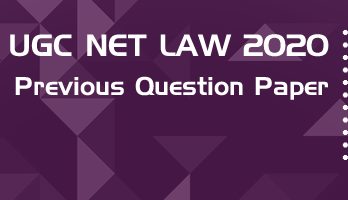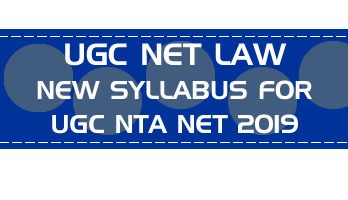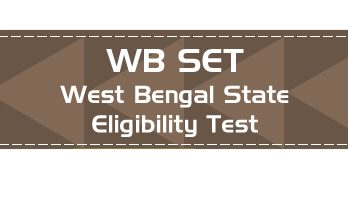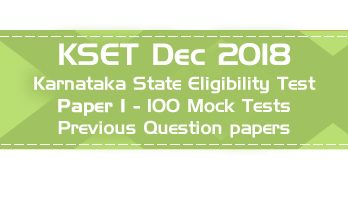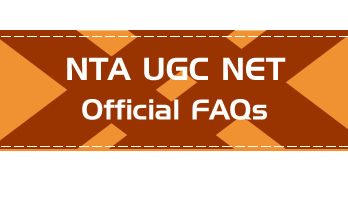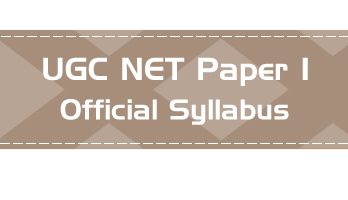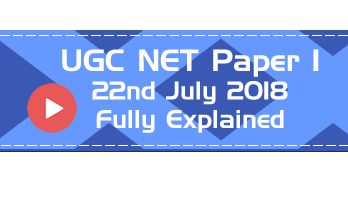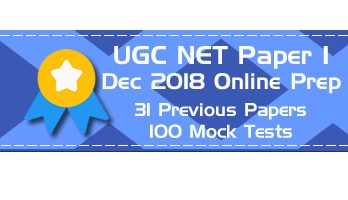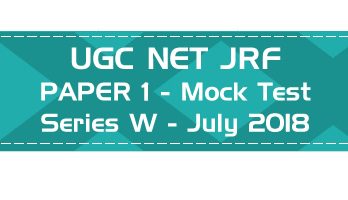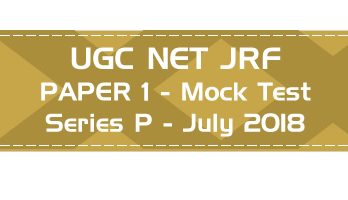- Latest Pattern Mock Tests including comprehension based questions
- Previous Question Papers with Answer Keys - From 2004 till the most recent exam
- 75 Full Length Mock Tests - New Pattern Paper II, with 100 questions each
- 50 Mini Practice Mock tests - with 25 questions each
- Unlimited Practice - New Questions in every attempt of all mocks
- Questions & Answer Choices randomly shuffled in every attempt for better practice
- Database of over 11000+ MCQs covering the entire syllabus
- Unlimited access and practice for one year from the date of purchase
- Accessible 24 x 7 via Smart-Phone browsers and Desktops
Authentic Feedback from previous LawMint users :
I got AIR 21 in CLAT PG. Thank you so much. Your mocks helped me a lot in my preparation 🙂 - Ayushi Jain
I have subscribed to your CLAT PG program and got AIR 36 in this year CLAT PG. I have also secured AIR 54 in AILET PG exam. I would like to thank you. Your mock paper really helps a lot - Shrashank Tripathi
I would like to thank you for the CLAT PG LLM COURSE. Practising mock tests there helped me in getting confidence and hence I was able to get AIR 45 in CLAT PG LLM - Akshay Awasthi
A year back, I relied on the IIT Kharagpur RGSOIPL mock test series by LawMint to prepare for my RGSOIPL entrance test. Few months back, I relied on your UGC NET Law series to prepare for UGC NET. I was the topper of the RGSOIPL entrance, and have cracked JRF in UGC NET. All thanks to LawMint - Anshuman Sahoo
"I got AIR 18 in CLAT PG and General Category rank 28 in AILET PG. I want to thank you for helping me practice well in controlled conditions from any place. It gave me a lot of confidence and I took the tests while travelling too. I also made it to IIT Kharagpur." - Vinodharani
"Lawmint has been of great help to me in securing AIR 25 in AILET PG and AIR 29 in CLAT PG examinations. The subjective and objective approach of the test series kept me up to date with the latest exam pattern." - Bhawna Nanda
"I, Nimmy Saira Zachariah joined you clat test series. I cleared AILET PG with 30th rank. Your test series were of immense help as it gave me clear idea of where my preparations stand thank you once again law mint." - Nimmy S Z
"Hey guys. Where do I start? If I thought that getting AIR 59 in Clat PG was it, then how wrong I was. With Lawmint now I have cracked UGC NET as well." - Joyanta Chakraborty
Note : Answer Keys to all Previous Question Papers published on LawMint are available to registered users of LawMint.com Online Practice Packs.
Check out all the HECI NTA NET or UGC CBSE NET Paper 1 previous question papers here : Previous Papers & Mock Tests
Note : UGC has rolled out a revised syllabus for both Papers 1 & 2 from Jan 2019 onward.
1. Choose the proper alternative given in the codes to replace the question mark : Bee-Honey, Cow-Milk, Teacher-?
– Intelligence
– Marks
– Lessons
– Wisdom
2. P is the father of R and S is the son of Q and T is the brother of P. If R is the sister of S, how is Q related to T
– Wife
– Sister-in-law
– Brother-in-law
– Daughter-in-law
3. A definition put forward to resolve a dispute by influencing attitudes or stirring emotions is called
– Lexical
– Persuasive
– Stipulative
– Precisions
4. Which of the codes given below contains only the correct statements?
(i) Venn diagram is a clear method of notation.
(ii) Venn diagram is the most direct method of testing the validity of categorical syllogisms.
(iii) In Venn diagram method the premises and the conclusion of a categorical syllogism is diagrammed.
(iv) In Venn diagram method the three overlapping circles are drawn for testing a categorical syllogism.
– (i), (ii) & (iii)
– (i), (ii) & (iv)
– (ii), (iii) & (iv)
– (i), (iii) & (iv)
5. Inductive reasoning presupposes
– Unity in human nature.
– Integrity in human nature.
– Uniformity in human nature.
– Harmony in human nature.
6. Read the table below and based on this table answer question :
Area under Major Horticulture Crops (in lakh hectares)
Year | Fruits | Vegetables | Flowers | TotalHorticultureArea |
2005-06 | 53 | 72 | 1 | 187 |
2006-07 | 56 | 75 | 1 | 194 |
2007-08 | 58 | 78 | 2 | 202 |
2008-09 | 61 | 79 | 2 | 207 |
2009-10 | 63 | 79 | 2 | 209 |
Which of the following two years have recorded the highest rate of increase in area under the total horticulture?
– 2005-06 & 2006-07
– 2006-07 & 2008-09
– 2007-08 & 2008-09
– 2006-07 & 2007-08
7. Read the table below and based on this table answer question :
Area under Major Horticulture Crops (in lakh hectares)
Year | Fruits | Vegetables | Flowers | TotalHorticultureArea |
2005-06 | 53 | 72 | 1 | 187 |
2006-07 | 56 | 75 | 1 | 194 |
2007-08 | 58 | 78 | 2 | 202 |
2008-09 | 61 | 79 | 2 | 207 |
2009-10 | 63 | 79 | 2 | 209 |
Shares of the area under flowers, vegetables and fruits in the area under total horticulture are respectively:
– 1, 38 and 30 percent
– 30, 38 and 1 perctent
– 38, 30 and 1 percent
– 35, 36 and 2 percent
8. Read the table below and based on this table answer question :
Area under Major Horticulture Crops (in lakh hectares)
Year | Fruits | Vegetables | Flowers | TotalHorticultureArea |
2005-06 | 53 | 72 | 1 | 187 |
2006-07 | 56 | 75 | 1 | 194 |
2007-08 | 58 | 78 | 2 | 202 |
2008-09 | 61 | 79 | 2 | 207 |
2009-10 | 63 | 79 | 2 | 209 |
Which of the following has recorded the highest rate of increase in area during 2005-06 to 2009-10?
– Fruits
– Vegetables
– Flowers
– Total horticulture
9. Read the table below and based on this table answer question :
Area under Major Horticulture Crops (in lakh hectares)
Year | Fruits | Vegetables | Flowers | TotalHorticultureArea |
2005-06 | 53 | 72 | 1 | 187 |
2006-07 | 56 | 75 | 1 | 194 |
2007-08 | 58 | 78 | 2 | 202 |
2008-09 | 61 | 79 | 2 | 207 |
2009-10 | 63 | 79 | 2 | 209 |
Find out the horticultural crops that have recorded an increase of area by around 10 percent from 2005-06 to 2009-10.
– Fruits
– Vegetables
– Flower
– Total horticulture
10. Read the table below and based on this table answer question :
Area under Major Horticulture Crops (in lakh hectares)
Year | Fruits | Vegetables | Flowers | TotalHorticultureArea |
2005-06 | 53 | 72 | 1 | 187 |
2006-07 | 56 | 75 | 1 | 194 |
2007-08 | 58 | 78 | 2 | 202 |
2008-09 | 61 | 79 | 2 | 207 |
2009-10 | 63 | 79 | 2 | 209 |
What has been the share of area under fruits, vegetables and flowers in the area under total horticulture in 2007-08?
– 53 percent
– 68 percent
– 79 percent
– 100 percent
11. Read the table below and based on this table answer question :
Area under Major Horticulture Crops (in lakh hectares)
Year | Fruits | Vegetables | Flowers | TotalHorticultureArea |
2005-06 | 53 | 72 | 1 | 187 |
2006-07 | 56 | 75 | 1 | 194 |
2007-08 | 58 | 78 | 2 | 202 |
2008-09 | 61 | 79 | 2 | 207 |
2009-10 | 63 | 79 | 2 | 209 |
In which year, area under fruits has recorded the highest rate of increase?
– 2006-07
– 2007-08
– 2008-09
– 2009-10
12. ‘www’ stands for
– work with web
– word wide web
– world wide web
– worth while web
13. A hard disk is divided into tracks which is further subdivided into
– Clusters
– Sectors
– Vectors
– Heads
14. A computer program that translates a program statement by statement into machine languages is called a/an
– Compiler
– Simulator
– Translator
– Interpreter
15. A Gigabyte is equal to
– 1024 Megabytes
– 1024 Kilobytes
– 1024 Terabytes
– 1024 Bytes
16. A Compiler is a software which converts
– characters to bits
– high level language to machine language
– machine language to high level language
– words to bits
17. Virtual memory is
– an extremely large main memory.
– an extremely large secondary memory.
– an illusion of extremely large main memory.
– a type of memory used in super computers.
18. The phrase “tragedy of commons” is in the context of
– tragic even related to damage caused by release of poisonous gases.
– tragic conditions of poor people.
– degradation of renewable free access resources.
– climate change.
19. Kyoto Protocol is related to
– Ozone depletion
– Hazardous waste
– Climate change
– Nuclear energy
20. Which of the following is a source of emissions leading to the eventual formation of surface ozone as a pollutant?
– Transport sector
– Refrigeration and Air-conditioning
– Wetlands
– Fertilizers
21. The smog in cities in Indian mainly consists of
– Oxides of sulphur
– Oxides of nitrogen and unburnt hydrocarbons
– Carbon monoxide and SPM
– Oxides of sulphur and ozone
22. Which of the following types of natural hazards have the highest potential to cause damage to humans?
– Earthquakes
– Forest fires
– Volcanic eruptions
– Droughts and Floods
23. The percentage share of renewable energy sources in the power production in India is around
– 2-3%
– 22-25%
– 10-12%
– < 1%
24. In which of the following categories the enrolment of students in higher education in 2010-11 was beyond the percentage of seats reserved?
– OBC students
– SC students
– ST students
– Women students
25. Which one of the following statements is not correct about the University Grants Commission (UGC)?
– It was established in 1956 by an Act of Parliament.
– It is tasked with promoting and coordinating higher education.
– It receives Plan and Non-Plan funds from the Central Government.
– It receives funds from State Governments in respect of State Universities.
26. Consider the statement which is followed by two arguments (I) and (II):
Statement: Should India switch over to a two party system?
Arguments :
(I) Yes, it will lead to stability of Government.
(II) No, it will limit the choice of voters.
– Only argument (I) is strong.
– Only argument (II) is strong.
– Both the arguments are strong.
– Neither of the arguments is strong.
27. Consider the statement which is followed by two arguments (I) and (II):
Statement: Should persons with criminal background be banned from contesting elections?
Arguments :
(I) Yes, it will decriminalize politics.
(II) No, it will encourage the ruling party to file frivolous cases against their political opponents.
– Only argument (I) is strong.
– Only argument (II) is strong.
– Both the arguments are strong.
– Neither of the arguments is strong.
28. Which of the following statement(s) is/are correct about a Judge of the Supreme Court of India?
1) A Judge of the Supreme Court is appointed by the President of India.
2) He holds office during the pleasure of the President.
3) He can be suspended, pending an inquiry.
4) He can be removed for proven misbehaviors or incapacity.
– 1, 2 and 3
– 1, 3 and 4
– 1 and 3
– 1 and 4
29. In the warrant of precedence, the Speaker of the Lok Sabha comes next only to
– The President
– The Vice-President
– The Prime Minister
– The Cabinet Ministers
30. The black-board can be utilized best by a teacher for
– Putting the matter of teaching in black and white
– Making the students attentive
– Writing the important and notable points
– Highlighting the teacher himself.
31. Nowadays the most effective mode of learning is
– Self study
– Face-to-face learning
– e-learning
– Blended learning
and (D) Both
32. At the primary school stage, most of the teachers should be women because they
– can teach children better than men.
– know basic content better than men.
– are available on lower salaries.
– can deal with children with love and affection.
33. Which one is the highest order of learning?
– Chain learning
– Problem-solving learning
– Stimulus-response learning
– Conditioned-reflex learning
34. A person can enjoy teaching as a profession when he
– has control over students.
– commands respect from students.
– is more qualified than his colleagues.
– is very close to higher authorities.
35. “A diagram speaks more than 1000 words.” The statement means that the teacher should
– use diagrams in teaching.
– speak more and more in the class.
– use teaching aids in the class.
– not speak too much in the class.
36. A research paper
– is a compilation of information on a topic.
– contains original research as deemed by the author.
– contains peer-reviewed original research or evaluation of research conducted by others.
– can be published in more than one journal.
37. Which one of the following belongs to the category of good ‘research ethics’?
– Publishing the same paper in two research journals without telling the editors.
– Conducting a review of the literature that acknowledges the contributions of other people in the relevant field or relevant prior work.
– Trimming outliers from a data set without discussing your reasons in a research paper.
– Including a colleague as an author on a research paper in return for a favor even though the colleague did not make a serious contribution to the paper.
38. Which of the following sampling methods is not based on probability?
– Simple Random Sampling
– Stratified Sampling
– Quota Sampling
– Cluster Sampling
39. Which one of the following references is written as per Modern Language Association (MLA) format?
– Hall, Donald. Fundamentals of Electronics, New Delhi : Prentice Hall of India, 2005
– Hall, Donald. Fundamentals of Electronics, New Delhi : Prentice Hall of India, 2005
– Hall, Donald. Fundamentals of Electronics, New Delhi : Prentice Hall of India, 2005
– Hall, Donald. Fundamentals of Electronics, New Delhi : Prentice Hall of India, 2005
40. A workshop is
– a conference for discussion on a topic.
– a meeting for discussion on a topic.
– a class at a college or a university in which a teacher and the students discuss a topic.
– a brief intensive course for a small group emphasizing the development of a skill or technique for solving a specific problem.
41. A working hypothesis is
– a proven hypothesis for an argument.
– not required to be tested.
– a provisionally accepted hypothesis for further research.
– a scientific theory.
42. Read the following passage carefully and answer the question :
The Taj Mahal has become one of the world’s best known monuments. This domed white marble structure is situated on a high plinth at the southern end of four-quartered garden, evoking the gardens of paradise, enclosed within walls measuring 305 by 549 meters. Outside the walls, in an area known as Mumtazabad, were living quarters for attendants, market, serials and other structures built by local merchants and nobles. The tomb complex and the other imperial structures of Mumtazabad were maintained by the income of thirty villages given specifically for the tomb’s support. The name Taj Mahal is unknown in Mughal chronicles, but it is used by contemporary Europeans in India, suggesting that this was the tomb’s popular name. in contemporary texis, it is generally called simply the illuminated Tomb (Rauza-i-Munavvara).
Mumtaz Mahal died shortly after delivering her fourteenth child in 1631. The Mughal court was then residing in Buhanpur. Her remains were temporarily buried by the grief stricken emperor in a spacious garden known as Zainabad on the bank of the river Tapti. Six months later her body was transported to Agra, where it was interred in land chosen for the mausoleum. This land, situated south of the Mughal city on the bank of the Jamuna, had belonged to the Kachwaha rajas since the time of Raja Man Singh and was purchased from the then current raja, Jai Singh. Although contemporary chronicles indicate Jai Singh’s willing cooperation in this exchange, extant farmans (imperial commands) indicate that the final price was not settled until almost two years after the mausoleum’s commencement. Jai Singh’s further cooperation was insured by imperial orders issued between 1632 and 1637 demanding that the provide stone masons and carts to transport marble from the mines at Makrana, within his “ancestral domain”, to Agra where both the Taj Mahal and Shah Jahan’s additions to the Agra fort were constructed concurrently.
Work on the mausoleum was commenced early in 1632. Inscriptional evidence indicates much of the tomb was completed by 1636. By 1643, when Shah Jahan most lavishly celebrated the ‘Urs ceremony for Mumtaz Mahal’, the entire complex was virtually complete.
Marble stone used for the construction of te Taj Mahal was brought from te ancestral domain of Raja Jai Singh. The name of the place where mines of marble is
– Burhanpur
– Makrana
– Amber
– Jaipur
43. Read the following passage carefully and answer the question :
The Taj Mahal has become one of the world’s best known monuments. This domed white marble structure is situated on a high plinth at the southern end of four-quartered garden, evoking the gardens of paradise, enclosed within walls measuring 305 by 549 meters. Outside the walls, in an area known as Mumtazabad, were living quarters for attendants, market, serials and other structures built by local merchants and nobles. The tomb complex and the other imperial structures of Mumtazabad were maintained by the income of thirty villages given specifically for the tomb’s support. The name Taj Mahal is unknown in Mughal chronicles, but it is used by contemporary Europeans in India, suggesting that this was the tomb’s popular name. in contemporary texis, it is generally called simply the illuminated Tomb (Rauza-i-Munavvara).
Mumtaz Mahal died shortly after delivering her fourteenth child in 1631. The Mughal court was then residing in Buhanpur. Her remains were temporarily buried by the grief stricken emperor in a spacious garden known as Zainabad on the bank of the river Tapti. Six months later her body was transported to Agra, where it was interred in land chosen for the mausoleum. This land, situated south of the Mughal city on the bank of the Jamuna, had belonged to the Kachwaha rajas since the time of Raja Man Singh and was purchased from the then current raja, Jai Singh. Although contemporary chronicles indicate Jai Singh’s willing cooperation in this exchange, extant farmans (imperial commands) indicate that the final price was not settled until almost two years after the mausoleum’s commencement. Jai Singh’s further cooperation was insured by imperial orders issued between 1632 and 1637 demanding that the provide stone masons and carts to transport marble from the mines at Makrana, within his “ancestral domain”, to Agra where both the Taj Mahal and Shah Jahan’s additions to the Agra fort were constructed concurrently.
Work on the mausoleum was commenced early in 1632. Inscriptional evidence indicates much of the tomb was completed by 1636. By 1643, when Shah Jahan most lavishly celebrated the ‘Urs ceremony for Mumtaz Mahal’, the entire complex was virtually complete.
The popular name Taj Mahal was given by
– Shah Jahan
– Tourists
– Public
– European travellers
44. Read the following passage carefully and answer the question :
The Taj Mahal has become one of the world’s best known monuments. This domed white marble structure is situated on a high plinth at the southern end of four-quartered garden, evoking the gardens of paradise, enclosed within walls measuring 305 by 549 meters. Outside the walls, in an area known as Mumtazabad, were living quarters for attendants, market, serials and other structures built by local merchants and nobles. The tomb complex and the other imperial structures of Mumtazabad were maintained by the income of thirty villages given specifically for the tomb’s support. The name Taj Mahal is unknown in Mughal chronicles, but it is used by contemporary Europeans in India, suggesting that this was the tomb’s popular name. in contemporary texis, it is generally called simply the illuminated Tomb (Rauza-i-Munavvara).
Mumtaz Mahal died shortly after delivering her fourteenth child in 1631. The Mughal court was then residing in Buhanpur. Her remains were temporarily buried by the grief stricken emperor in a spacious garden known as Zainabad on the bank of the river Tapti. Six months later her body was transported to Agra, where it was interred in land chosen for the mausoleum. This land, situated south of the Mughal city on the bank of the Jamuna, had belonged to the Kachwaha rajas since the time of Raja Man Singh and was purchased from the then current raja, Jai Singh. Although contemporary chronicles indicate Jai Singh’s willing cooperation in this exchange, extant farmans (imperial commands) indicate that the final price was not settled until almost two years after the mausoleum’s commencement. Jai Singh’s further cooperation was insured by imperial orders issued between 1632 and 1637 demanding that the provide stone masons and carts to transport marble from the mines at Makrana, within his “ancestral domain”, to Agra where both the Taj Mahal and Shah Jahan’s additions to the Agra fort were constructed concurrently.
Work on the mausoleum was commenced early in 1632. Inscriptional evidence indicates much of the tomb was completed by 1636. By 1643, when Shah Jahan most lavishly celebrated the ‘Urs ceremony for Mumtaz Mahal’, the entire complex was virtually complete.
Point out the true statement from the following:
– Marble was not used for the construction of the Taj Mahal.
– Red sand stone is non-visible in the Taj Mahal complex.
– The Taj Mahal is surrounded by a four-quatered garden known as Chahr Bagh.
– The Taj Mahal was constructed to celebrate the “Urs ceremony for Mumtaz Mahal”.
45. Read the following passage carefully and answer the question :
The Taj Mahal has become one of the world’s best known monuments. This domed white marble structure is situated on a high plinth at the southern end of four-quartered garden, evoking the gardens of paradise, enclosed within walls measuring 305 by 549 meters. Outside the walls, in an area known as Mumtazabad, were living quarters for attendants, market, serials and other structures built by local merchants and nobles. The tomb complex and the other imperial structures of Mumtazabad were maintained by the income of thirty villages given specifically for the tomb’s support. The name Taj Mahal is unknown in Mughal chronicles, but it is used by contemporary Europeans in India, suggesting that this was the tomb’s popular name. in contemporary texis, it is generally called simply the illuminated Tomb (Rauza-i-Munavvara).
Mumtaz Mahal died shortly after delivering her fourteenth child in 1631. The Mughal court was then residing in Buhanpur. Her remains were temporarily buried by the grief stricken emperor in a spacious garden known as Zainabad on the bank of the river Tapti. Six months later her body was transported to Agra, where it was interred in land chosen for the mausoleum. This land, situated south of the Mughal city on the bank of the Jamuna, had belonged to the Kachwaha rajas since the time of Raja Man Singh and was purchased from the then current raja, Jai Singh. Although contemporary chronicles indicate Jai Singh’s willing cooperation in this exchange, extant farmans (imperial commands) indicate that the final price was not settled until almost two years after the mausoleum’s commencement. Jai Singh’s further cooperation was insured by imperial orders issued between 1632 and 1637 demanding that the provide stone masons and carts to transport marble from the mines at Makrana, within his “ancestral domain”, to Agra where both the Taj Mahal and Shah Jahan’s additions to the Agra fort were constructed concurrently.
Work on the mausoleum was commenced early in 1632. Inscriptional evidence indicates much of the tomb was completed by 1636. By 1643, when Shah Jahan most lavishly celebrated the ‘Urs ceremony for Mumtaz Mahal’, the entire complex was virtually complete.
In the contemporary texts the Taj Mahal is known
– Mumtazabad
– Mumtaz Mahal
– Zainabad
– Rauza-i-Munavvara
46. Read the following passage carefully and answer the question :
The Taj Mahal has become one of the world’s best known monuments. This domed white marble structure is situated on a high plinth at the southern end of four-quartered garden, evoking the gardens of paradise, enclosed within walls measuring 305 by 549 meters. Outside the walls, in an area known as Mumtazabad, were living quarters for attendants, market, serials and other structures built by local merchants and nobles. The tomb complex and the other imperial structures of Mumtazabad were maintained by the income of thirty villages given specifically for the tomb’s support. The name Taj Mahal is unknown in Mughal chronicles, but it is used by contemporary Europeans in India, suggesting that this was the tomb’s popular name. in contemporary texis, it is generally called simply the illuminated Tomb (Rauza-i-Munavvara).
Mumtaz Mahal died shortly after delivering her fourteenth child in 1631. The Mughal court was then residing in Buhanpur. Her remains were temporarily buried by the grief stricken emperor in a spacious garden known as Zainabad on the bank of the river Tapti. Six months later her body was transported to Agra, where it was interred in land chosen for the mausoleum. This land, situated south of the Mughal city on the bank of the Jamuna, had belonged to the Kachwaha rajas since the time of Raja Man Singh and was purchased from the then current raja, Jai Singh. Although contemporary chronicles indicate Jai Singh’s willing cooperation in this exchange, extant farmans (imperial commands) indicate that the final price was not settled until almost two years after the mausoleum’s commencement. Jai Singh’s further cooperation was insured by imperial orders issued between 1632 and 1637 demanding that the provide stone masons and carts to transport marble from the mines at Makrana, within his “ancestral domain”, to Agra where both the Taj Mahal and Shah Jahan’s additions to the Agra fort were constructed concurrently.
Work on the mausoleum was commenced early in 1632. Inscriptional evidence indicates much of the tomb was completed by 1636. By 1643, when Shah Jahan most lavishly celebrated the ‘Urs ceremony for Mumtaz Mahal’, the entire complex was virtually complete.
The Construction of the Taj Mahal was completed between the period
– 1632-1636 A.D.
– 1630-1643 A.D.
– 1632-1643 A.D.
– 1636-1643 A.D.
47. Read the following passage carefully and answer the question :
The Taj Mahal has become one of the world’s best known monuments. This domed white marble structure is situated on a high plinth at the southern end of four-quartered garden, evoking the gardens of paradise, enclosed within walls measuring 305 by 549 meters. Outside the walls, in an area known as Mumtazabad, were living quarters for attendants, market, serials and other structures built by local merchants and nobles. The tomb complex and the other imperial structures of Mumtazabad were maintained by the income of thirty villages given specifically for the tomb’s support. The name Taj Mahal is unknown in Mughal chronicles, but it is used by contemporary Europeans in India, suggesting that this was the tomb’s popular name. in contemporary texis, it is generally called simply the illuminated Tomb (Rauza-i-Munavvara).
Mumtaz Mahal died shortly after delivering her fourteenth child in 1631. The Mughal court was then residing in Buhanpur. Her remains were temporarily buried by the grief stricken emperor in a spacious garden known as Zainabad on the bank of the river Tapti. Six months later her body was transported to Agra, where it was interred in land chosen for the mausoleum. This land, situated south of the Mughal city on the bank of the Jamuna, had belonged to the Kachwaha rajas since the time of Raja Man Singh and was purchased from the then current raja, Jai Singh. Although contemporary chronicles indicate Jai Singh’s willing cooperation in this exchange, extant farmans (imperial commands) indicate that the final price was not settled until almost two years after the mausoleum’s commencement. Jai Singh’s further cooperation was insured by imperial orders issued between 1632 and 1637 demanding that the provide stone masons and carts to transport marble from the mines at Makrana, within his “ancestral domain”, to Agra where both the Taj Mahal and Shah Jahan’s additions to the Agra fort were constructed concurrently.
Work on the mausoleum was commenced early in 1632. Inscriptional evidence indicates much of the tomb was completed by 1636. By 1643, when Shah Jahan most lavishly celebrated the ‘Urs ceremony for Mumtaz Mahal’, the entire complex was virtually complete.
The documents indicating the ownership of land, where the Taj Mahal was built, known as
– Farman
– Sale Deed
– Sale-Purchase Deed
– None of the given choices
48. In the process of communication, which one of the following is in the chronological order?
– Communicator, Medium, Receiver, Effect, Message
– Medium, Communicator, Message, Receiver, Effect
– Communicator, Message, Medium, Receiver, Effect.
– Message, Communicator, Medium, Receiver, Effect.
49. Bengal Gazette, the first Newspaper in India was started in 1780 by
– Dr. Annie Besant
– James Augustus Hicky
– Lord Cripson
– A.O. Hume
50. Press censorsip in India was imposed during the tenure of the Prime Minister
– Rajeev Gandhi
– Narasimha Rao
– Indira Gandhi
– Deve Gowda
51. Communication via New media such as computers, teleshopping, internet and mobile telephony is termed as
– Entertainment
– Interactive communication
– Developmental communication
– Communication
52. Classroom communication of a teacher rests on the principle of
– Infotainment
– Edutainment
– Entertainment
– Enlightenment
53. ______ is important when a teacher communicates with his/her student.
– Sympathy
– Empathy
– Apathy
– Antipathy
54. In a certain code GALIB is represented by HBMJC. TIGER will be represented by
– UJHFS
– UHJSE
– JHUSF
– HUJSE
55. In a certain cricket tournament 45 matches were played. Each team played once against each of the other teams. The number of teams participated in the tournament is
– 8
– 10
– 12
– 210
56. The missing number in the series 40, 120, 60, 180, 90, ?, 135 is
– 110
– 270
– 105
– 210
57. The odd numbers from 1 to 45 which are exactly divisible by 3 are arranged in an ascending order. The number at 6th position is
– 18
– 24
– 33
– 36
58. The mean of four numbers a,b,c,d is 100. IF c = 70, then the mean of the remaining numbers is
– 30
– 85/2
– 170/3
– 110
59. If the radius of a circle is increased by 50%, the perimeter of the circle will increased by
– 20%
– 30%
– 40%
– 50%
60. If the statement ‘some men are honest’ is false, which among the following statements will be true. Choose the correct code given below:
(i) All men are honest
(ii) No men are honest
(iii) Some men are not honest.
(iv) All men are dishonest.
– (i), (ii) and (iii)
– (ii), (iii) and (iv)
– (i), (iii) and (iv)
– (ii), (i) and (iv)
- Latest Pattern Mock Tests including comprehension based questions
- Previous Question Papers with Answer Keys - From 2004 till the most recent exam
- 75 Full Length Mock Tests - New Pattern Paper II, with 100 questions each
- 50 Mini Practice Mock tests - with 25 questions each
- Unlimited Practice - New Questions in every attempt of all mocks
- Questions & Answer Choices randomly shuffled in every attempt for better practice
- Database of over 11000+ MCQs covering the entire syllabus
- Unlimited access and practice for one year from the date of purchase
- Accessible 24 x 7 via Smart-Phone browsers and Desktops
Authentic Feedback from previous LawMint users :
I got AIR 21 in CLAT PG. Thank you so much. Your mocks helped me a lot in my preparation 🙂 - Ayushi Jain
I have subscribed to your CLAT PG program and got AIR 36 in this year CLAT PG. I have also secured AIR 54 in AILET PG exam. I would like to thank you. Your mock paper really helps a lot - Shrashank Tripathi
I would like to thank you for the CLAT PG LLM COURSE. Practising mock tests there helped me in getting confidence and hence I was able to get AIR 45 in CLAT PG LLM - Akshay Awasthi
A year back, I relied on the IIT Kharagpur RGSOIPL mock test series by LawMint to prepare for my RGSOIPL entrance test. Few months back, I relied on your UGC NET Law series to prepare for UGC NET. I was the topper of the RGSOIPL entrance, and have cracked JRF in UGC NET. All thanks to LawMint - Anshuman Sahoo
"I got AIR 18 in CLAT PG and General Category rank 28 in AILET PG. I want to thank you for helping me practice well in controlled conditions from any place. It gave me a lot of confidence and I took the tests while travelling too. I also made it to IIT Kharagpur." - Vinodharani
"Lawmint has been of great help to me in securing AIR 25 in AILET PG and AIR 29 in CLAT PG examinations. The subjective and objective approach of the test series kept me up to date with the latest exam pattern." - Bhawna Nanda
"I, Nimmy Saira Zachariah joined you clat test series. I cleared AILET PG with 30th rank. Your test series were of immense help as it gave me clear idea of where my preparations stand thank you once again law mint." - Nimmy S Z
"Hey guys. Where do I start? If I thought that getting AIR 59 in Clat PG was it, then how wrong I was. With Lawmint now I have cracked UGC NET as well." - Joyanta Chakraborty
Note : Answer Keys to all Previous Question Papers published on LawMint are available to registered users of our Online Practice Packs.
Check out all the HECI NTA NET or UGC CBSE NET Paper 1 previous question papers here : Previous Papers & Mock Tests


